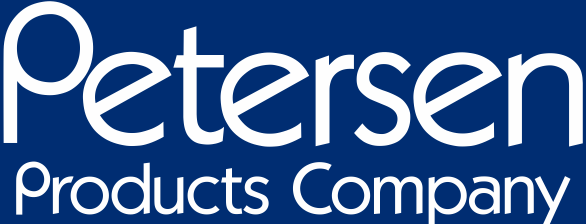Green Drain Cleaning: Protecting Pipes and the Planet


Out of the 93% of Americans that planned to spring clean in 2022, 92% said they were considering taking action to reduce their environmental impact while doing so, according to a Bona and Harris Poll survey of over 2,000 U.S. adults. Furthermore, more than half 56% said they were considering the use of cleaning products that have environmentally friendly ingredients. For those who wish to lessen their environmental impact when addressing a clogged drain, there are several eco-friendly avenues worth exploring. When considering the effects of traditional drain cleaners, green cleaning alternatives and specialized tools are ideal choices when looking to make a positive difference with your next project.
The environmental impact of traditional drain cleaners
Traditional drain cleaners are known for their harsh — yet effective — nature. When considering the environmental impact, GRM Inc. highlights the effects that chemical drain cleaners can have. In addition to the impact on human health (for example, the smell of these chemicals can result in respiratory issues), chemical drain cleaners have the potential to severely damage your pipes and can even impair the septic system. “Sulphuric acid is solid and corrosive enough to break down organic materials, grease, oil, hair, etc., which clears clogging,” GRM explains, going on to note that the corrosive nature of these chemicals can damage the pipes, with regular use having the potential to form small holes. “This further triggers plumbing problems like clogging, internal leakage, pressure fluctuation, etc.,” GRM notes, which will lead to the eventual need for replacement.
The environmental impact of drain cleaners cannot be overlooked. According to Treehugger, the active ingredient in the cleaner Drano and other conventional drain cleaners is sodium hydroxide (also known as caustic soda or lye), a man-made chemical that is used for its corrosive properties. Treehugger goes on to note that the substance isn’t considered to be a pollutant, according to the federal Agency for Toxic Substances and Disease Registry, as it “separates into relatively harmless component elements once released into water or moist soil.” A University of Vermont research paper explores the environmental impact of the popular drain cleaning product Drano. According to the conclusion of the paper, the product has minimal effects on the greater environment and the ecology of organisms, though notes that “the unfortunate evolution of Drano as a misused and abused product has made it volatile and detrimental in the context of sustainability.”
Exploring effective DIY solutions
Homemade drain cleaners can present a fantastic option for those looking to clean a drain in a way that avoids toxic chemicals while keeping the environment at the forefront of the project. According to The Spruce, a slow drain can often be cleared with a homemade concoction consisting of boiling water and a mixture of baking soda and white vinegar. “Baking soda (a base substance called sodium bicarbonate) and vinegar (a mild acetic acid) react together to create a fizzy, bubbly action that releases carbon dioxide, which can loosen up clogs so they can be washed down the drain.” Chasing the mixture with boiling water will then work to wash out any debris and clogs. In addition to the accessible ingredients needed for this solution, The Spruce notes that the equipment needed includes a cup, bucket, and drain stopper. Repeating the method as needed can help in situations where the first attempt shows improvement.
Baking soda and vinegar isn’t the only homemade drain cleaner out there. HGTV highlights several alternative mixtures worth trying, including a mixture of salt, Borax, and vinegar. After pouring ¼ cup of salt followed by ¼ cup of Borax down the drain, adding ½ cup of vinegar and finishing with a pot of boiling water can effectively clear a drain when allowed to sit for an hour (or until it clears). From there, running hot water will rinse remaining solution down the drain. Other noteworthy mixtures include baking soda and lemon juice, baking soda and salt, and baking soda with salt and cream of tartar.
In addition to homemade and environmentally friendly solutions, simple tools — like a drain snake or auger — can make a major difference when tackling minor issues such as a sink or shower drain clog. Apartment Therapy highlights several examples of plastic options that can be used to effectively grab onto hair and debris, from those that feature a basic design to others that boast a more innovative approach. The Drain Weasel Plus, for instance, is marketed as reusable. Furthermore, it’s worth mentioning that a toilet plunger can also be used on minor sink clogs, presenting as another chemical free and eco-friendly solution that will protect your pipes and the environment.
Drain flushers have been around for over a century and are a chemical free, eco-friendly method of clearing clogged pipes using your home’s water pressure. You’ll want to take these precautions though when using a drain flusher.[2]
Seeking eco-friendly alternatives
When looking for alternative products that are kinder to the environment, there are several on the market. As such, it’s imperative to understand the several important elements of an effective green drain cleaner. Failing to choose the wrong cleaner, or opting for a one-size-fits-all cleaning product is just one of many common cleaning mistakes and can be applied to your home’s drains, too. Adapting your cleaning methods is essential when tackling different spaces in the home in order to achieve a proper clean, and is especially important when facing unique challenges such as granite countertops, wood floors, and even your home’s drains.
Doing your research beforehand, however, will enable you to choose the right cleaner for your needs. According to one U.S. News & World Report article, there are several aspects worth considering before purchase, including the formulation of the cleaner, its effectiveness on tough clogs, septic system safety, and environmental impact. In regard to septic system safety, for example, the article explains that knowing the specific pipes and clogs that the drain cleaner is suitable for is imperative before purchasing. “Not all drain cleaners are meant for toilet clogs, and ones that aren’t may damage your septic system.” The U.S. News article further explains the importance of biodegradable products, noting that when you pour a chemical drain cleaner down the drain, the formula runs through the water supply (and can eventually make its way into rivers and lakes), and can pose threats to the environment and wildlife. “Enzyme drain cleaners lessen the environmental impact,” states the article. “They also won’t harm your pipes like chemical cleaners do.”
Traditional drain cleaners are often the go-to option when looking to efficiently clear a clog. However, while effective, the chemicals can be of concern in regard to both human health and the environment. Opting for green cleaners, a homemade solution, or an innovative tool, however, present as alternative solutions that keep the environment at the forefront of your next drain cleaning project.
Written by Nina Hill



